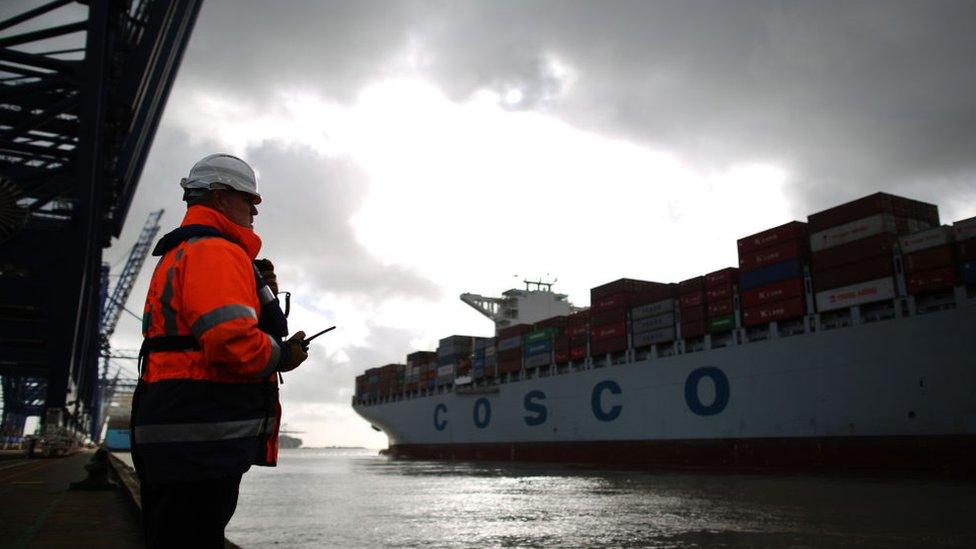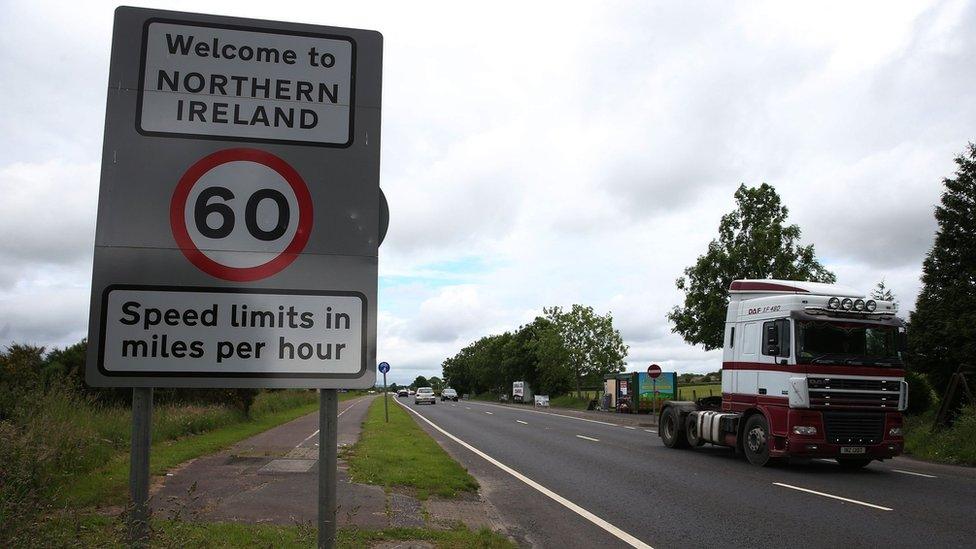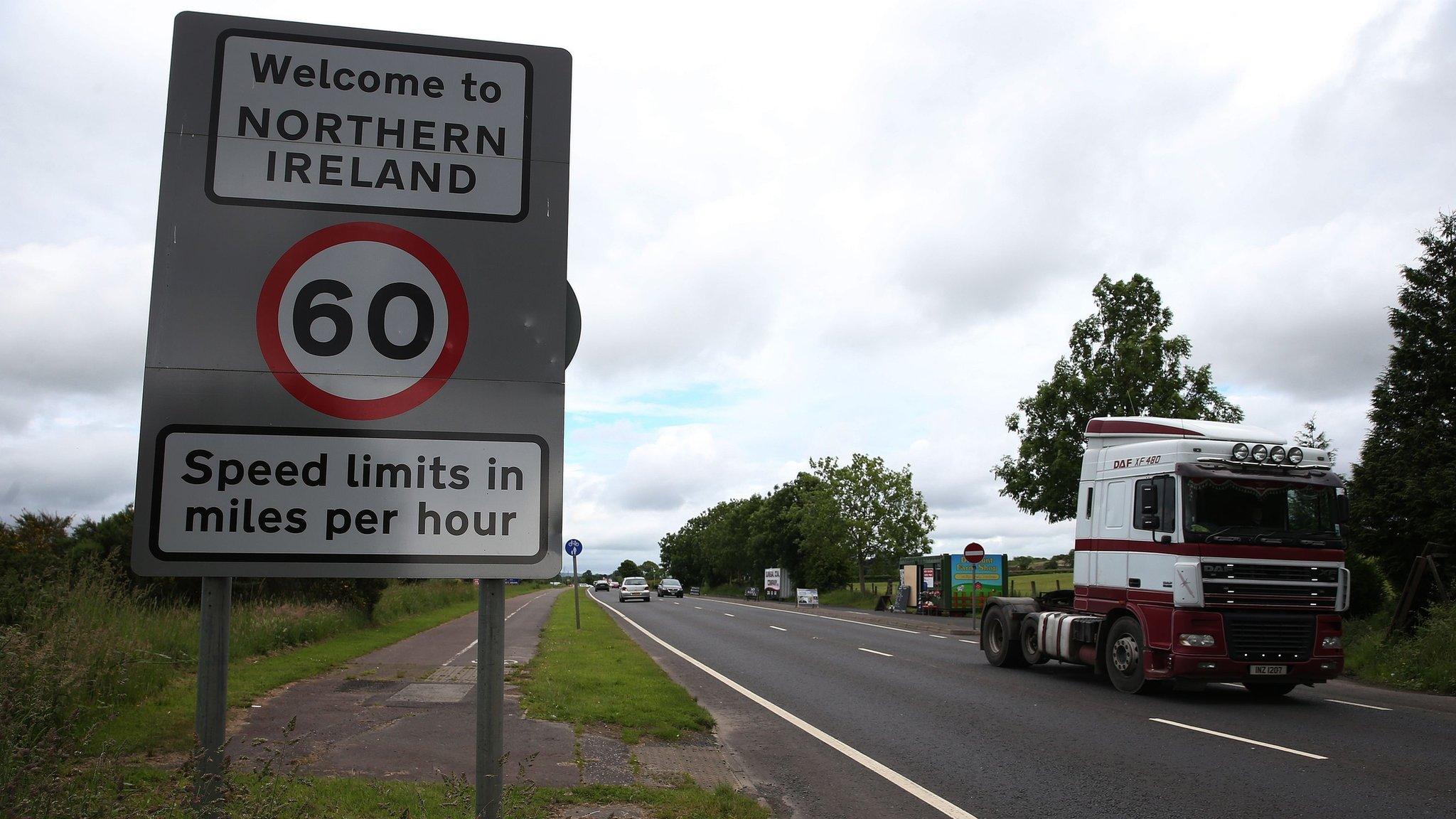Brexit: What is a third country?
- Published

The UK government says the EU is threatening to prevent food being sent from Great Britain to Northern Ireland.
But the EU says it is not considering any kind of food blockade, as negotiations on the post-Brexit relationship continue.
So, what's going on?
What is third country listing?
The UK and the EU are coming to a crucial moment in their post-Brexit trade talks and the stakes are high.
The row about food comes after the UK defended its Internal Market Bill, which has been heavily criticised as it would override parts of the Brexit withdrawal agreement it reached with the EU.
Some of the claims and counter claims should be taken with a pinch of salt. But part of the current row is about third country listing.
A "third country" basically refers to any country outside the EU, and in this case outside its economic structures - the single market and the customs union.
Businesses in a third country have to fill in customs declarations, for example, when they import from and export to the EU - whether there is a trade agreement or not.
The EU also has a formal list of third countries that are approved for food imports - that's what third country listing means. It's mainly about sanitary rules for products of animal origin, and making sure they meet the basic standard for sale in the single market.
The UK government says the EU is threatening not to put the UK on that approved list.
And because the terms of the EU withdrawal agreement mean Northern Ireland will stay within the rules of the EU single market, but the rest of the UK will not, that could in theory prevent food being sent from Great Britain to Northern Ireland.
The EU says it is not refusing to put the UK on the third country list. Instead, it says, it is simply waiting to find out what the UK's import and export rules will be, before it makes a decision.

Why doesn't the UK make those rules clear?
The government says its position is already clear. At the moment UK rules are exactly the same as EU rules because we are still in the single market. And that, as the UK negotiator David Frost has said on social media, will remain the case on 1 January 2021.
But the EU says it wants to know what the UK's future plans are - whether it intends, for example, to water down some of the strict food safety standards that the EU has agreed.
The UK says that is asking for a bigger commitment than the EU demands from other third countries. They are put on the approved list on the understanding that they will notify the EU of any future change in food standards.
So, it's a bit of a stand-off.
Could this really lead to a food blockade?
That seems highly unlikely.
For one thing, the Northern Ireland protocol contains safeguard measures which allow either side to act if the application of the protocol is causing "serious economic difficulties that are liable to persist".
Secondly, the EU really doesn't want to deny the UK third country status, because so many of its companies trade in food with the UK.
So, both sides seem to be using this issue as leverage to try to get what they want, and to justify their negotiating positions.
What's it got to do with the Internal Market Bill?
Apart from the fact that it is all wrapped up in issues arising from the Northern Ireland protocol, not very much.
The Internal Market Bill only makes a passing reference to trade from Great Britain to Northern Ireland, and it has nothing to do with the trade in products of animal origin.
The issues on which the UK government says it is prepared to break international law in a "very specific and limited way" are rather different.
They involve the need for Northern Ireland businesses to fill out online export declarations when they send goods to Great Britain, and the need for the UK to follow EU state aid rules (on subsidies for business) when they affect trade in Northern Ireland.
Confused by Brexit jargon? Reality Check unpacks the basics
These are commitments which were made in the withdrawal agreement, which the government now wants to change.
It's also possible that there could be more changes to come. The upcoming finance bill may allow ministers to decide unilaterally which goods moving from Great Britain to Northern Ireland are "at risk" of being exported to the EU and should therefore have tariffs, or taxes on imports, imposed on them.
That too would breach the agreement made with the EU.
The government says it is all about having a fallback position if the EU refuses to talk sensibly about trade between Great Britain and Northern Ireland.
And there are some fairly fundamental principles at stake - for the UK protecting the union, and for the EU protecting the single market.
But another way to look at this is that both sides are taking a tough approach as post-Brexit trade talks come to a head. And that shouldn't really surprise anyone.



- Published8 December 2020

- Published30 December 2020
